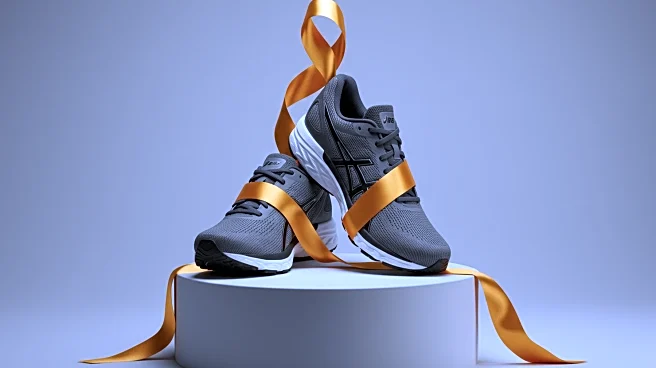What is the story about?
What's Happening?
Nike co-founder Phil Knight and his wife Penny Knight have pledged a record $2 billion to the Oregon Health & Science University’s Knight Cancer Institute. This donation is described as the largest single gift ever made to a U.S. university, surpassing previous records such as Michael Bloomberg's $1.8 billion donation to Johns Hopkins University in 2018. The funds will be used to enhance patient care by providing access to psychological, genetic, and financial counseling, symptom management, nutritional support, and survivorship care. The donation will also enable the Knight Cancer Institute to become a self-governed entity with its own board of directors within OHSU.
Why It's Important?
This unprecedented donation is set to significantly impact cancer research and patient care, particularly in Oregon. By becoming a self-governed entity, the Knight Cancer Institute will have greater autonomy in directing its resources and research efforts. The investment underscores the importance of philanthropy in advancing medical research and healthcare services, potentially setting a new standard for donations to academic health centers. The Knights' contribution could inspire other wealthy individuals to make similar philanthropic commitments, thereby enhancing the capacity of universities to tackle major health challenges.
What's Next?
The Knight Cancer Institute will begin the process of establishing its own governance structure, which will allow it to operate independently within OHSU. This transition is expected to enhance its ability to innovate and expand its research capabilities. The donation may also prompt other universities to seek similar large-scale contributions to bolster their research and healthcare initiatives. As the institute grows, it may attract top-tier researchers and clinicians, further advancing its mission to combat cancer.
Beyond the Headlines
The donation highlights the growing trend of billionaires using their wealth to influence public health and education. It raises questions about the role of private funding in public institutions and the potential for such contributions to shape research priorities. Additionally, the Knights' gift may lead to increased scrutiny of how large donations are managed and the ethical implications of private influence in public health sectors.















